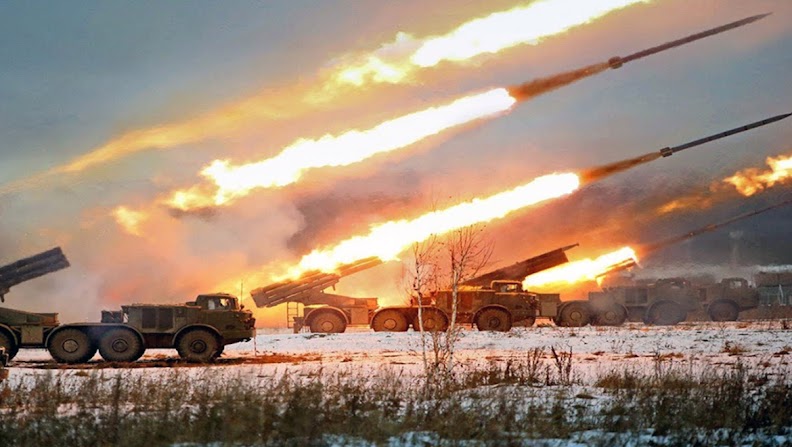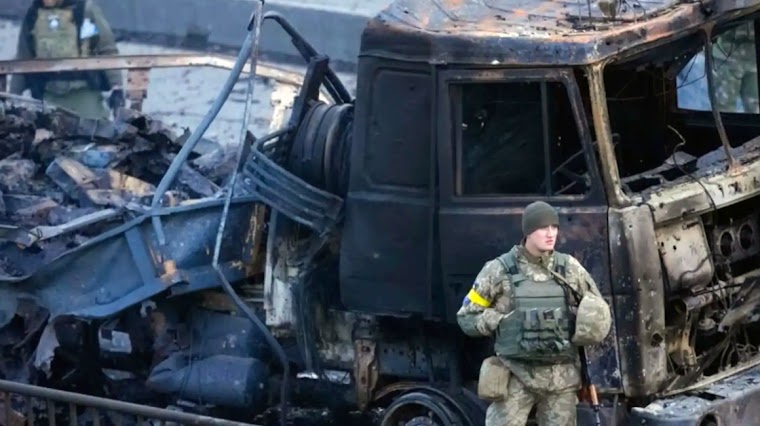 |
| Multiple Rocket Launch Image Source |
Russian President Vladimir Putin ordered a land, naval, and air invasion against Ukraine on February 24. The invasion came after months of tension, with Russia amassing roughly 200,000 troops on the former Soviet territory's border, which won independence in 1991.
Russian researchers describe the battle with Ukraine as "unfair" and "senseless" in a letter published on the trv-science.ru website. Many of the signatories have relatives, friends, and scientific colleagues in Ukraine, and they claim that the attack is a "cynical betrayal" of prior generations of Russians and Ukrainians who fought alongside during WWII.
According to the letter, the invasion will isolate Russia and turn it into an international pariah, making scientific work in the country hard to continue as usual. The signatories state, "After all, undertaking scientific research is unthinkable without complete cooperation with colleagues from other nations." 'Russia's isolation from the rest of the world means that our country will start to worsen socially and technologically in the lack of any positive prospects.'
The scientists demand an immediate halt to military operations in Ukraine, as well as respect for "the Ukrainian state's sovereignty and territorial integrity."
Bioinformatician Mikhail Gelfand, who helped organize the letter, said in an interview with Science that he had visited Crimea a couple of times after the annexation in 2014 to foster contacts between Russian and Ukrainian scientists. 'I'm afraid that isn't possible any longer,' he added.
The Ukrainian parliament announced a 30-day state of emergency after learning about Russia's military incursion. Several Ukrainian universities have ordered staff and students to stay at home as a result of the crisis, with others preparing to continue classes online.
 |
| Russian troops In Kiev Image Credit |
The president of Ukraine's National Academy of Sciences, Anatoliy Zagorodniy, issued a statement urging the country's research community to remain unified and peaceful.
Academic research has come to a complete halt at the National University of Kyiv-Mohyla Academy (Naukma), with many students and professors 'having to immediately abandon their premises,' with some sites experiencing power outages and internet outages. The declaration calls on the international academic community to rally with their Ukrainian colleagues.
'We call on universities and scientific institutions in Europe and around the world to support Ukraine in its fight against [P]utin's tyranny, which is destroying the foundations of peace, security, and democracy in Europe and around the world.'
Naukma has publicly released messages of support from academic institutions all around Europe. 'We are very concerned about your community's safety, and we hope that peace will return to Ukraine very soon,' wrote Christine Neau-Leduc, president of Paris' Panthéon-Sorbonne University.
'Every war is a black card in the history of humanity and opposes the universal principles held by the academic community,' according to the officials of Nicolaus Copernicus University in Torun, Poland.
Universities and science organizations from all over Europe have written more letters of sympathy. Jras Banys, president of the Lithuanian Academy of Sciences, stated in one that Lithuania had expanded funds for collaboration with Ukrainian scientists this year and will continue to do so in the future. 'We hope that this craziness ends as soon as possible, and we will work together to develop science in a peaceful and free world,' he said in response to Russia's invasion of Ukraine.
'We are deeply concerned about the lives and safety of Ukrainian professors and students. 'German universities will support them to the best of their abilities,' says the statement. President of the German Rectors' Conference, Peter-André Alt, issued a statement. 'These trends are also likely to have a negative impact on German–Russian academic ties.' We'll have to go through the implications in greater depth.'
Some European politicians have urged for Russia to be kicked out of the EU's Horizon Europe science funding program as western nations tighten up sanctions in reaction to the aggression, according to Science Business. While research leaders argue that science should not be politicized, the European Commission has exploited Horizon Europe access as a political bargaining chip in recent years.









0 Comments
please do not enter any spam link in the comment box